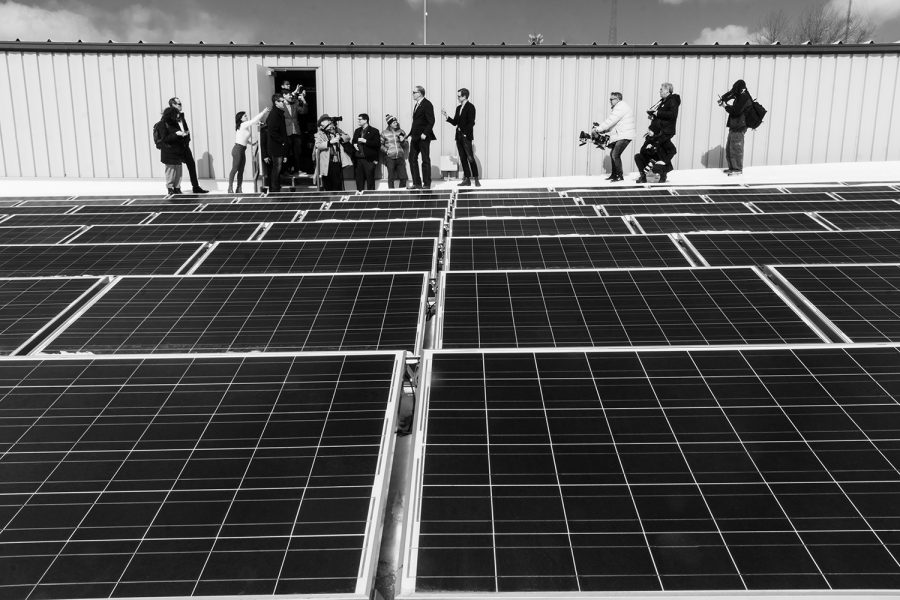Iowa City City Council registers against Iowa solar bill
In a work session Tuesday, the City Council expressed their disapproval of a bill that would permit energy companies to charge solar customers who generate their own power for access to the grid.
Washington Governor Jay Inslee stopped by Paulson Electric Co in Cedar Rapids on Tuesday March 5, 2019. Jay Inslee talked with CEO Tyler Olson about climate change and how solar pannels combat its effects.
April 2, 2019
Iowa City City Council expressed concerns around a bill making its way through the Iowa legislature during a work session on Tuesday with a majority of councilors voting against the bill.
The Iowa Senate passed Senate File 583 on March 18. The bill would permit utility companies to charge customers with personal solar panels a fee for use of the power grid.
Currently, residents who have their own solar panels often pay nothing or very little for electricity. Proponents of the bill say this is an unfair advantage, as they are still accessing a power grid provided by a utility company.
MidAmerican Energy released a statement in February signalling their support for the bill.
“Customers who own solar…don’t pay for their use of the electric grid,” the statement says. “Instead, other customers who don’t have their own solar pay for these costs.”
RELATED: Iowa City reacts to legislation that would prohibit rental caps
Opponents of the bill say the bill would give large energy companies a monopoly on solar energy, and it would hurt small solar companies.
In an informal vote at the Tuesday work session, a majority of the councilors voted against the bill, meaning the city will officially register against it.
Some members of the council expressed concern that this would hinder the city’s sustainability efforts and hurt independent solar users.
“We live in an era of climate change,” Councilor Rockne Cole said. “This is going to significantly impede the solar industry.”
Councilors Susan Mims and Bruce Teague were hesitant to take a position on the bill. Mims said she had heard concerns from solar advocates, but she hadn’t done enough research to make a decision either way.
“Philosophically, I don’t think there’s anything wrong with people having to pay for basic access to the electrical grid,” Mims said. “I’m not prepared to take a position against it when I don’t have a full understanding.”






